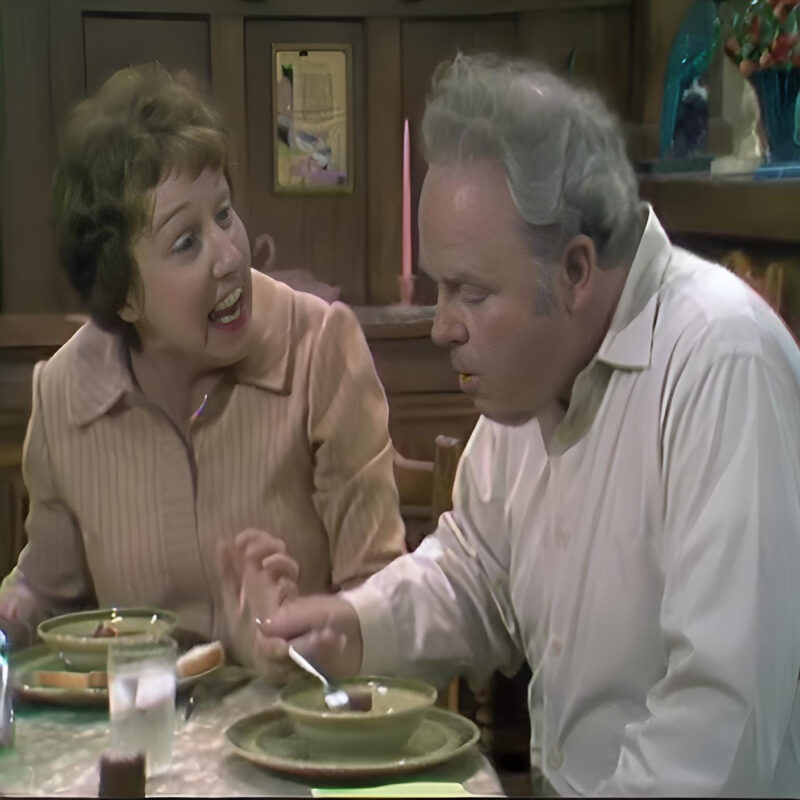
In 1971, Fred Ferretti posed a provocative question in The New York Times about a new CBS sitcom called “All in the Family”: “Are racism and bigotry funny?” His answer was a resounding no, citing a lack of taste. Yet, the American public seemed to disagree.
The show, featuring Carroll O’Connor as the bigoted Archie Bunker, aired until 1979 and garnered numerous Emmys and Golden Globes. It’s become such a cultural cornerstone that Archie and Edith Bunker’s chairs are now displayed at the Smithsonian National Museum of American History. The museum notes, “Their battlegrounds were the very issues dividing American society—ethnic prejudice, women’s liberation, and racism. The show’s humor revealed the limits of Archie’s bigotry, as well as the self-righteousness of his children.”
However, the same question resurfaced after a recent Fresh Air segment. During a discussion about new DVD releases of 1970s talk shows, TV critic David Bianculli played a controversial clip from the “David Susskind Show,” featuring comedians Mel Brooks and David Steinberg. The clip included a joke by Steinberg about bringing a black girl home before introducing a gentile girl to Jewish parents, a jab at racial and cultural tensions.
Some listeners found the segment racially offensive. Marilu Carter expressed feeling “disheartened, disappointed, and alarmed.” John Abbot criticized it for highlighting racist humor, potentially perpetuating historic biases. Others defended the humor, arguing that Steinberg, himself Jewish, was satirizing his own culture and the racism of the time.
Bianculli, a seasoned TV critic and professor, explained his choice. He wanted to illustrate how freely and unguardedly the guests spoke on the Susskind Show, using humor to tackle seldom-discussed subjects. He also admitted that the clip made him laugh, underscoring the subjective nature of comedy.
Danny Miller, co-executive producer of Fresh Air, added that the joke didn’t rely on negative stereotypes about African Americans. It was a mild, affectionate poke at Jewish parents’ discomfort with their son’s dating choices. Miller emphasized that avoiding all potentially offensive humor would deprive listeners of much enjoyment and engagement.
Selective perception, where personal biases influence how we interpret events, plays a role in reactions to such humor. A study by Neil Vidmar and Milton Rokeach found that non-bigots saw “All in the Family” as affirming their views, while bigots found validation in Archie Bunker’s character. This phenomenon highlights the challenge for NPR and similar outlets in balancing content choices that might offend some while engaging others.
In the end, Bianculli and Miller argue that addressing bigotry through humor, even at the risk of offending some, is valuable. It can foster dialogue and promote self-awareness. Jonathan P. Rossing, a communications professor, supports this view, noting the educative and transformative potential of humor. While humor is complex and often contentious, it can keep vital conversations about race and other sensitive issues alive.
Your opinions matter too. Please share them.
